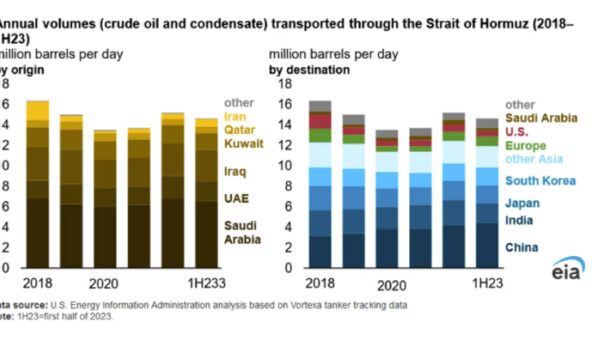Global markets are currently spooked over the likely effects of the newly discovered Omicron Covid-19 variant, first discovered in southern Africa. On Friday, MSCI global stocks benchmark fell to its lowest in over a year, crude oil prices also tumbled 13%, lowest since September while cryptocurrencies led by Bitcoin crashed below $55k.
The reaction to the virus is also not limited to the financial market as global leaders also scrambled to close their borders in a bid to contain its spread.
The United States, United Kingdom, Israel, Saudi Arabia, South Korea have all issued travel limits from passengers from southern Africa where the virus is thought to have originated. Israel went a step further to close its borders to foreigners after it discovered the case.
Diaspora Remittances, which Nigeria also relies heavily on for forex inflows could also be affected
Whilst much of the cases have emanated from South Africa, we also received our first case of the Omicron virus from Nigeria. Reports indicate two Nigerians who just arrived in Canada tested positive for the virus. This is a bad omen for travel out of Nigeria and even more so for the economy.
So far, Nigeria has avoided the market selloffs with the All-Share Index pulling off a marginal gain at closing last Friday. However, increased panic in the global markets and among rich nations may spell a bad omen for the economy if it persists. One particular area of major concern is Nigeria’s exchange rate due to its ripple effect on the economy.
The exchange rate between the Naira and dollar at the black market closed at about N560/$1 much weaker than the N540/$1 recorded two weeks earlier as traders cited shortage of supply as a possible reason for the dip. But as global economies react negatively to the new variant, there is palpable fear that it could trigger a ripple effect on the Nigerian economy.
Oil prices which have suffered a 13% dip in prices is an example of how this could affect the economy. Nigeria relies heavily on crude oil exports to shore up exchange rate.
When crude oil prices tank, the Nigerian economy tallies along as we have seen in recent years. A drop in Nigeria’s crude oil export earnings in the final month of the last quarter of the year could widen the current account deficit which rose to a negative $424 million second quarter of 2021 from $2.1 billion in the first quarter of the year.
Nigeria earned $11 billion from crude oil exports in the second quarter of 2021, helping boost Nigeria’s foreign exchange reserves. Nairametrics expects Nigeria to post a current account surplus in the third quarter of this year.
As we have reported severally on Nairametrics, a ballooning current account deficit occurs when we spend more dollars than we earn from exports forcing a devaluation of the naira.
Should this variant usher in a wave of Covid-19 infections that force another round of global shutdowns, we could see Nigeria’s export earnings dip due to lower crude oil prices, leading to another current account deficit.
Another risk posed by this new variant is its likely effect on travel to Nigeria during the Xmas holidays. The month of December has often recorded stable exchange rates due to a flood of dollars brought in by holiday-making Nigerians.
This important source of supply at the parallel market could also be negatively affected if global travel restrictions are enforced leading to flight cancellations. If this occurs, demand for dollars which may have been met by supply from inbound holiday makers, could lead to a weaker currency in the Christmas period.
Diaspora Remittances, which Nigeria also relies heavily on for forex inflows could also be affected if the latest covid-19 variants lead to economic slowdowns as we have observed with previous variants.
Loss of jobs, high inflation, fear of uncertainty often force people to save more including Nigerians who live and work abroad. The effect is that diaspora Nigerians could cut their remittances into the country as they weigh the wider effect of the variant going into the new year.
While it is still too early to postulate about the strength and possible effects of this new strain of Covid-19 virus, markets are already pricing in its possible risks and consequences.
As we enter a new week, more information will be available to better understand the virus and its impact on global markets especially foreign exchange.
Foreign currencies stabilized against the dollar over the weekend after an initial drop. The US dollar initially rose against the Euro and Japanese Yen. However, the South African Rand gained 0.9% against the dollar.
Article Originally Published Here




















































You must be logged in to post a comment Login